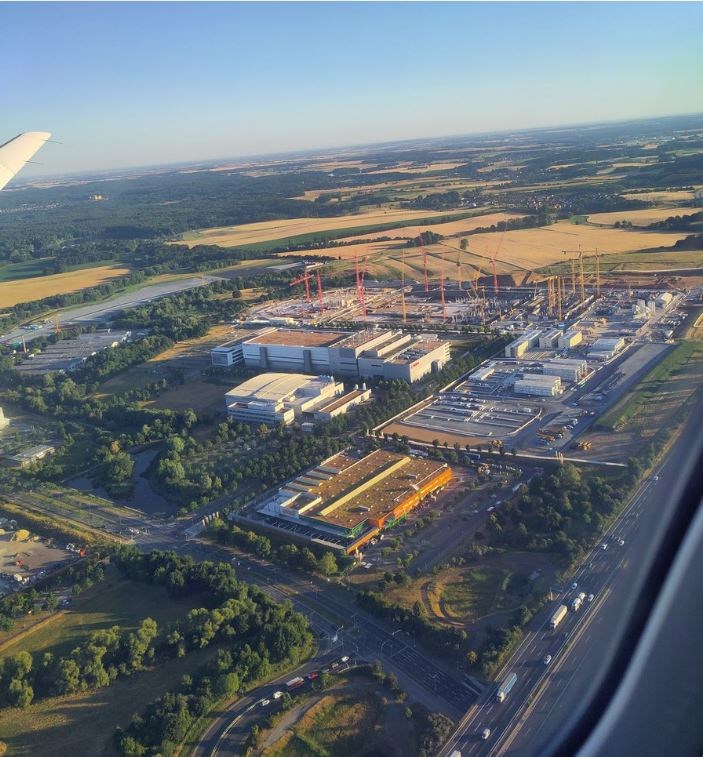
Berlin, Sept. 5 (CNA) Germany is preparing to open its first public vocational school with all instruction in English to train a skilled workforce for a Taiwan Semiconductor Manufacturing Co. (TSMC) fab under construction in Dresden, expected to begin operations in 2027.
The Saxony state government and the local Chamber of Industry and Commerce are working on the project, Saxony's Minister of Education Conrad Clemens told Handelsblatt, a German-language business newspaper published in Düsseldorf.
Around 5,000 technical positions are expected to be needed once the fab of the world's largest contract chipmaker is completed.
"Now it is time to offer vocational school training programs in English, too. As a region, we have a great opportunity to become more international with the arrival of TSMC and Infineon," Clemens said.
The Dresden fab of European Semiconductor Manufacturing Co. (ESMC) is a joint venture between TSMC and three European partners -- Robert Bosch GmbH, Infineon Technologies AG and NXP Semiconductors N.V.
The new school will be a six-story building with a gymnasium and swimming pool, with the European Union contributing 100 million euros (US$117 million) toward a total budget of 140 million euros, Handelsblatt reported Thursday.
The fab will be TSMC's first facility in Germany, Europe's largest economy, and is expected to reach a monthly production capacity of 40,000 300-millimeter wafers using TSMC's 28/22-nanometer planar CMOS and 16/12-nanometer FinFET process technologies, according to TSMC.
The public vocational school will offer 1,000 apprenticeship positions annually once it opens in 2029, featuring semiconductor-related courses taught in English, the report said.
Germany's vocational education system follows a dual model, with apprentices spending roughly 70 percent of their time in company internships and 30 percent in school-based learning.
Legal and language hurdles remain, however, as graduation exams in German vocational schools must currently be conducted in German.
Previous attempts by schools to offer English instruction failed due to a lack of qualified teachers and teaching materials, the local Chamber of Industry and Commerce noted.
The fact that smaller local companies primarily operate in German adds to the challenge, the chamber said.
To address these issues, bilingual programs for fields such as microelectronics engineering are being considered, according to the Saxony state government.
"For the future, dual vocational training in English is crucial to integrate international talent into our intercultural team," ESMC CEO Christian Koitzsch told Handelsblatt. "This helps us meet the demands of the global semiconductor market in the best possible way."
"Anyone who doesn't try doesn't know if it will work," a local official said, adding that all those involved have pledged to make it happen. "Now everyone is working flat out."
-
Society
Iran conflict to 'severely' delay Taiwan mail to 17 countries
03/02/2026 06:32 PM -
Cross-Strait
Iran could cloud Trump-Xi talks but unlikely to spark Taiwan war: Scholars
03/02/2026 06:13 PM -
Society
Iran-linked hostilities impact over 2,000 Taiwan travelers
03/02/2026 05:52 PM -
Society
Qingjing Farm to pay compensation for horse that mangled child's ear
03/02/2026 05:15 PM -
Business
U.S. dollar closes sharply higher on Taipei forex market
03/02/2026 04:26 PM